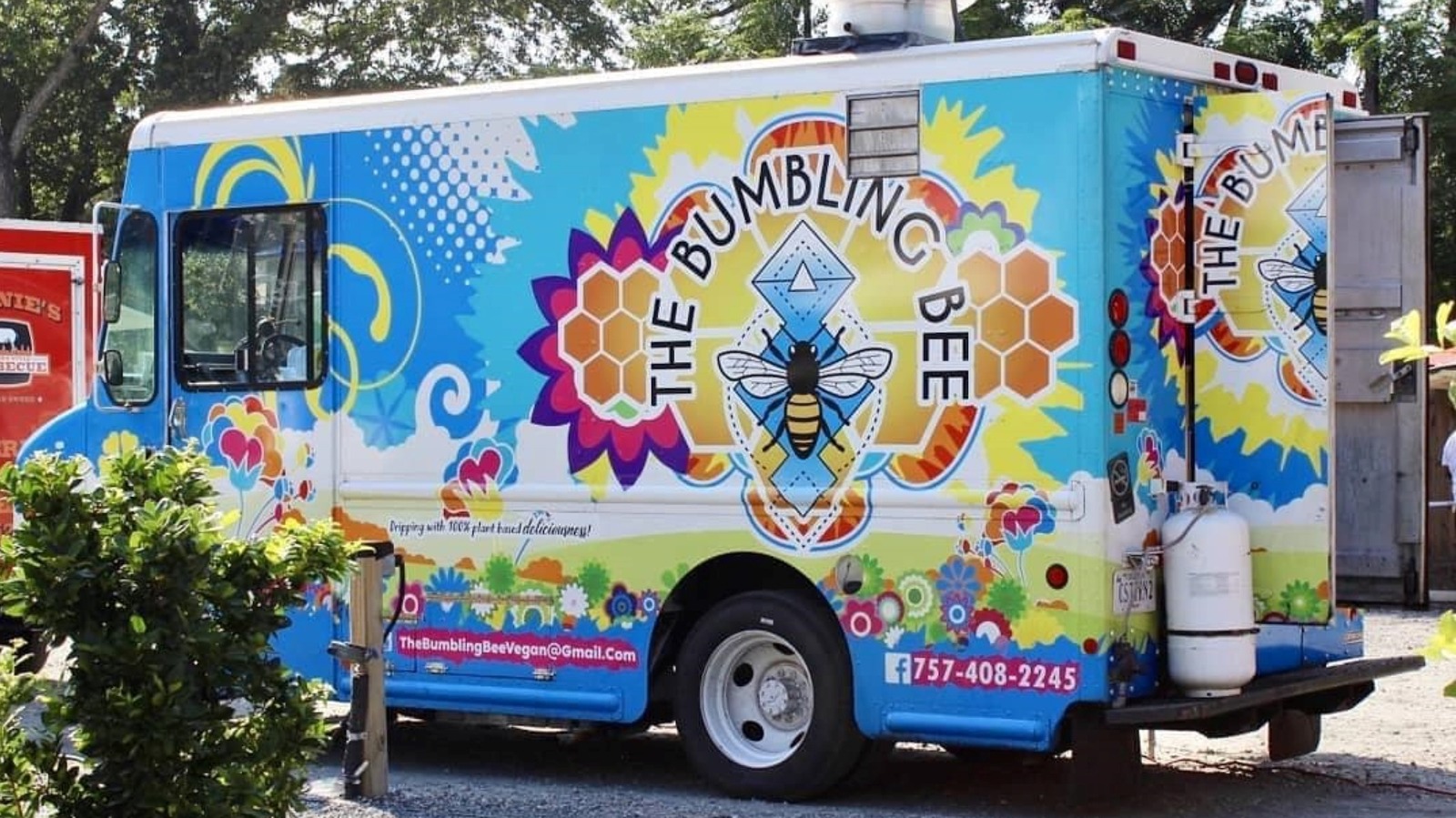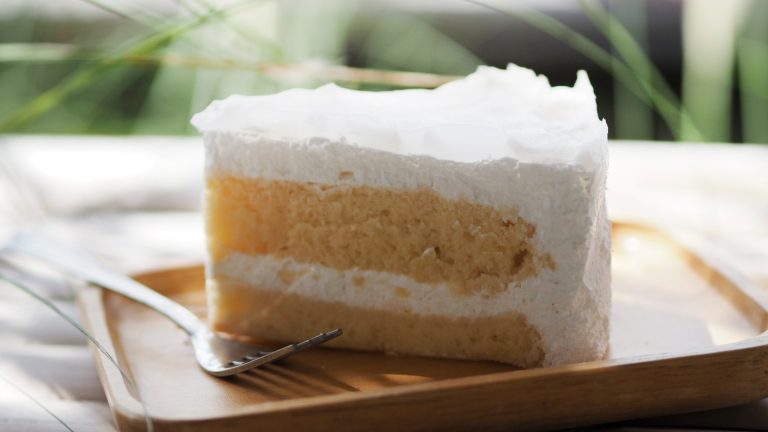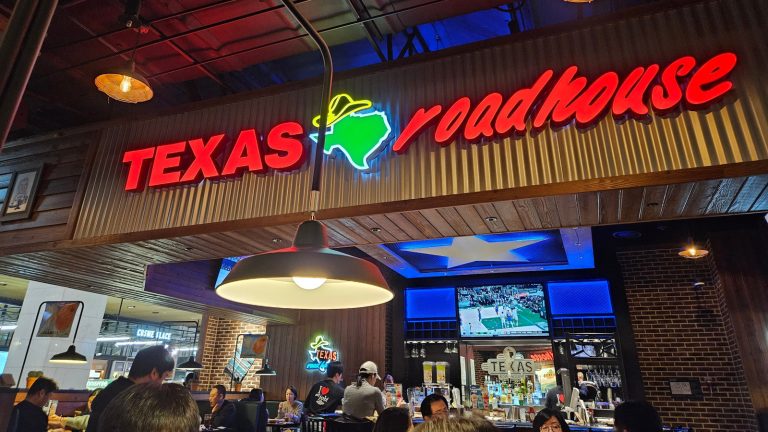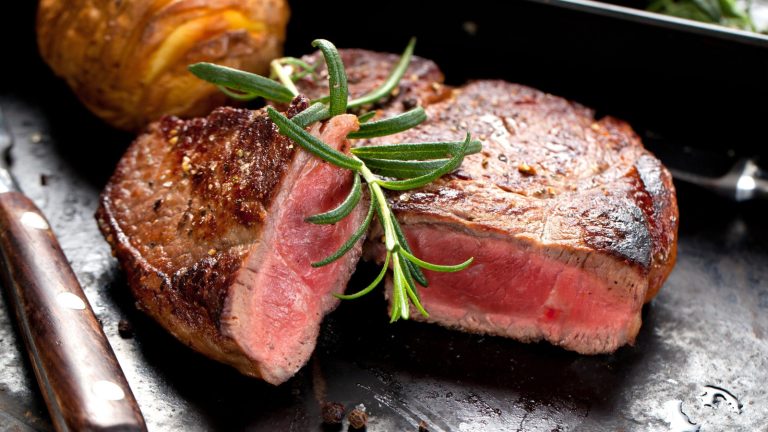A good story can go a long way on “Shark Tank”, but as The Bumbling Bee discovered, it’s only part of the equation for a successful pitch. At the time of appearing on “Shark Tank,” the vegan food company, run by family team Cassandra Ayala and her daughters India and Olivia, specialized in street food and junk food, like dairy-free vegan milkshakes and chili cheese dogs. Starting out as a food truck, The Bumbling Bee had a mission – they stated on the show, “We are crushing that myth that plant-based food has to be just twigs and berries.” While targeted at plant-based eaters looking for an indulgent fast-food style meal, the Ayalas were also pushing The Bumbling Bee as a delicious option for any diner, even those who were just looking to occasionally order a vegan meal.
The company came about after Cassandra Ayala’s previous business, flipping houses, had gone bust when the real estate bubble burst in 2008. She took her lefttover savings and opened a hot dog cart, which expanded to several, but wanted to get her daughters excited about her business. Two of her children were vegan, and The Bumbling Bee concept was born. India, who joined Cassandra for the pitch, was a trained chef, and The Bumbling Bee was a hit right out the gate, expanding from food trucks to brick and mortar locations within the first year.
What happened to The Bumbling Bee on Shark Tank?
When The Bumbling Bee came on “Shark Tank” they had just expanded to two brick and mortar locations, one in Virginia Beach, Virginia, and the other in Boulder, Colorado. India Ayala was running the Virginia location while Olivia was running things in Colorado. Coming on the show in 2020, the company stated that they had made $320,000 so far that year, despite the stores being closed for several months due to the Covid pandemic and the cancellation of events the food truck would have been servicing.
Impressed by Cassandra, Lori Greiner asked about her background, and that’s when she shared her difficult backstory. She had grown up with an alcoholic mother, now sober, and had been homeless as a child. Cassandra started her own businesses because she learned from that hardship that she wanted to be in control of her own life and destiny.
As much as the sharks were taken with the Ayalas’ story and drive, they shared similar concerns about the overall business model. While they liked the food, there were a lot of reservations about the viability of vegan junk food, with shark Robert Herjavec pointing out that there were already many vegan burger and plant-based fast-food concepts expanding in California, which would make this a risky investment. Mark Cuban also felt there was nothing unique enough about The Bumbling Bee to justify the $150,000 investment.
What happened to The Bumbling Bee after Shark Tank?
In the end all five sharks declined to make an offer over concerns that the landscape for vegan fast food was too competitive, and that The Bumbling Bee was expanding too quickly. Greiner advised the family to focus on growing sales in existing locations rather than expanding. The Ayalas sadly went home without a deal. However the family was gracious and excited about the exposure they got on national television, with Cassandra telling local news station WTKR that it was a great experience and the family was still happy with what they had.
However the next few years were tough for The Bumbling Bee. The lingering challenges of the Covid-19 pandemic led to the closure of the Boulder, Colorado location. The owners also said that they struggled with the severe staffing shortages that affected restaurant employment after the pandemic. With the brick and mortar stores struggling, the company tried to take a new angle and expand onto college campuses. The Bumbling Bee signed a deal with nearby William & Mary college to bring its food truck on campus as a dining option, which would be open to students and faculty as well as local residents. Unfortunately for The Bumbling Bee that failed to pan out as well.
Is The Bumbling Bee still in business?
Unfortunately The Bumbling Bee is no longer in business. The company pushed on in the years after “Shark Tank”, but finally closed for good in 2024. In a post on Facebook the Ayalas explained the difficult situation that forced the closures of the remaining store and the food trucks. While Covid had hurt the business badly it was difficulty with a landlord that spelled the end of The Bumbling Bee. A ceiling collapse and broken AC unit in the Virgina Beach location were not repaired by the storefront’s owners, making the location an unhealthy place to continue serving food. The Bumbling Bee unfortunately didn’t have the money to open in a new location, and were forced to close.
The college vending deal also fell through. The Bumbling Bee said of the college dining hall vendors Aramark that they made the deal with, “they defaulted on promises of a guarantee and minimal to no advertising that put us in a financial position that we could not continue to go forward.” Despite a new $10,000 investment to try and refresh the brand, there wasn’t enough support for The Bumbling Bee to continue with the difficulties of operating just as a food truck, and the company announced it’s closing in May of 2024. However, the owners said they were confident the company would have succeeded without the pandemic, and the Ayalas have shown that confidence, and the resilience the sharks saw, with a new business venture.
What’s next for The Bumbling Bee?
In the exact same post announcing the closure of the last Bumbling Bee food truck, the owners also announced the launch of a new food truck called Solana Street Food. The Ayalas have ditched the vegan concept and opted for a new menu of Puerto Rican favorites, which includes fresh empanadas and rice bowls with black beans and plantains. As of May 2025 the food truck is still in business, with regular posts on its Facebook pages about festivals and events where you can find it.
While it might be disappointing to know The Bumbling Bee couldn’t sustain its vegan concept, the reality is many vegan restaurants are struggling. With customers concerned about high prices, the fact that vegan ingredients often cost more than traditional options is a high hurdle. There also just aren’t that many vegans out there, with surveys showing only between one and four percent of Americans identify as vegan, with the number being low enough that even surveys have a hard time finding them. And as the sharks identified, the competition in the vegan food field is fierce, and established fast food brands have a leg up in offering plant-based options that take business away from startups like The Bumbling Bee. With such a tough business, and the pandemic, it’s hard to fault The Bumbling Bee for struggling. Hopefully the Ayalas’ drive will be rewarded and their new food truck will find long-term success instead.





